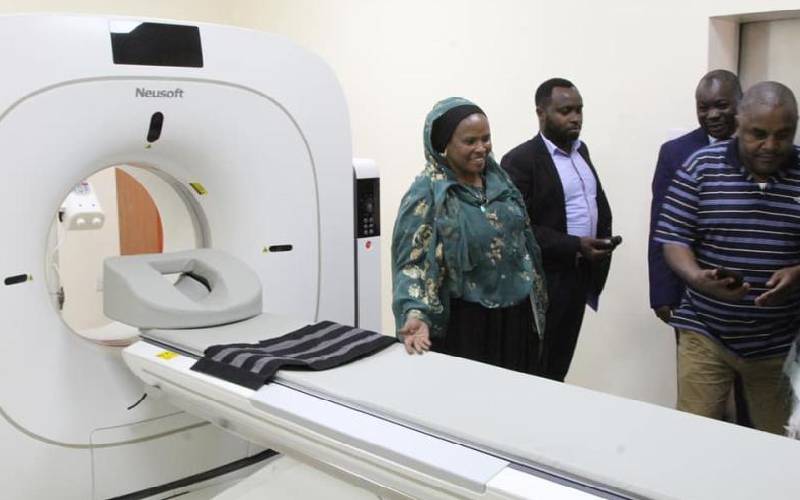×
The Standard e-Paper
Stay Informed, Even Offline

Senate Health Committee chairperson Fatuma Dullo (in hijab) stands next to dysfunctional CT scan when she led other senators to visit Iten county referral hospital. [File, Standard]
In 2013, the government came up with the Sh38 billion Managed Equipment Services (MES) project. The rationale behind it was to revolutionalise the medical sector.